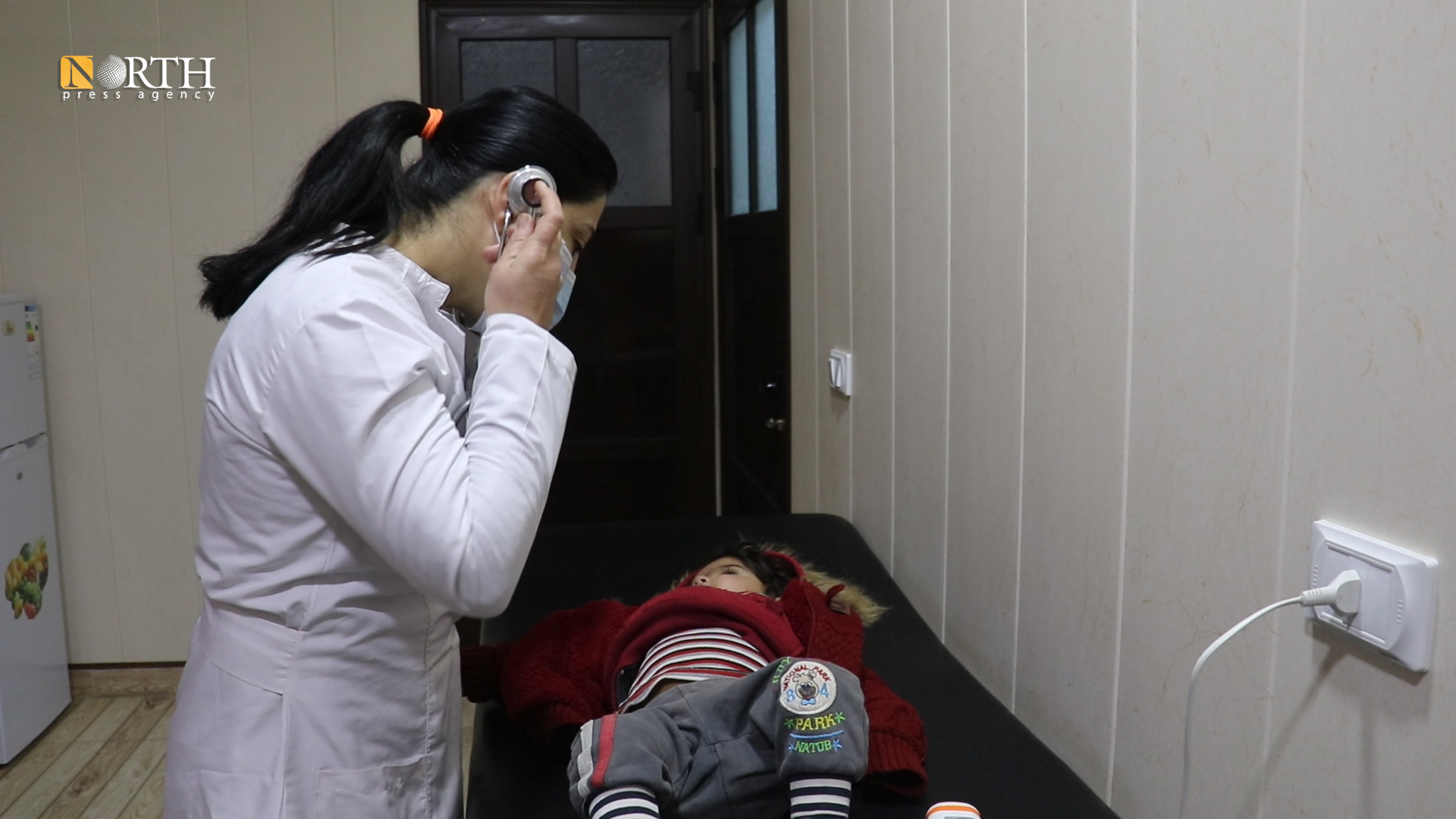JIL AGHA, Syria (North Press) – Breastfeeding mothers in the countryside of Jil Agha, east Qamishli, say that they are forced replace prescription baby formula with food due to the high price of formula cans.
The price of a can of baby formula ranges between 5,500 and 13,500 Syrian pounds (SYP), because they are foreign products.
Failure to comply
65-year-old Ronahi Abdullah said that during the first eight months of her granddaughter’s life, she was forced to feed her with cow’s milk, boiled apples, yogurt, and cereal powder with rice.
She added that the doctor prescribed formula “because the infant has dehydration and breastfeeding is insufficient.”
Abdullah justified her failure to comply with the doctor’s instructions, saying, “Formula is too expensive, and a can of it does not last for more than two days.”
However, due to the doctor’s warnings that the infant’s condition is worsening, the grandmother will be forced to buy formula soon.
Low income
Jil Agha countryside resident Maryam Omar says that she has bought about six formula cans for more than 30,000 SYP to feed her child, although she sometimes resorted to breastfeeding.
“These conditions force parents to work for extra hours in order to secure their children’s needs while nursing,” she added.
Most low-income people “ask only about the price of the formula or the possibility to replace it with another kind,” according to local pharmacist Ahmed Hussein.
Although income levels and living conditions in northeast Syria are better than other Syrian areas, low-income families cannot meet all their basic needs, especially those of imported products.
Risks and diseases
Pediatrician Sherin Khalil, from the town of Girke Lege, said that some mothers have preferred formula to breastfeeding for several reasons.
“For example, breastfeeding can prevent pregnancy, so some women deprive their children of breastfeeding in order to get pregnant again,” she said.
Out of every 15 to 20 children who visit the clinic on daily basis, five to seven have malnutrition, according to Khalil.
Khalil noted the risks of mixing yogurt with tea, cow’s milk, or powdered milk to feed their children instead of breastfeeding or formula feeding.
“It is possible to give cow or goat’s milk to the child after they reach six months, but not as a basic food, because it may suffer from anemia, iron deficiency, enteritis and gastritis,” she added.
It is possible to “give boiled vegetables in water to children without any other additions such as sugar, salt, or oil,” according to Khalil, who warned of giving food to the infant without a medical advice.

